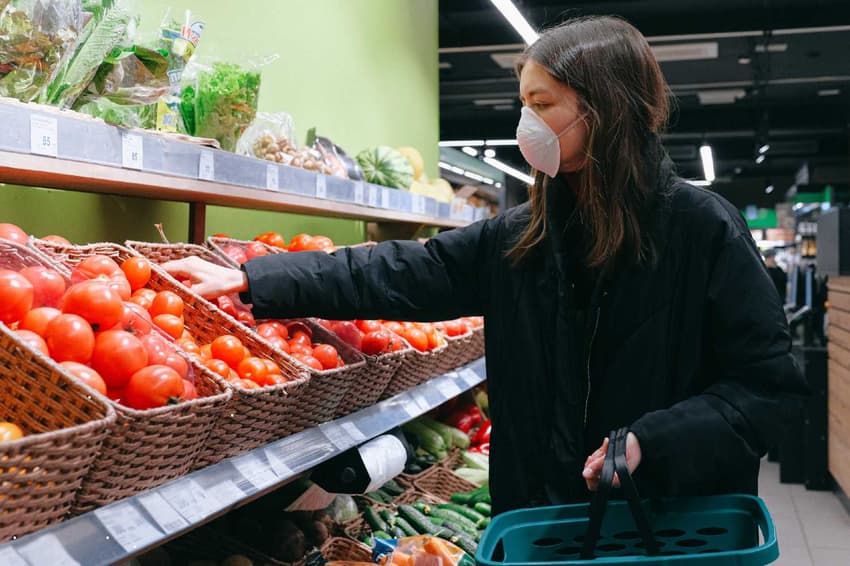Here’s how Switzerland is planning to avoid coronavirus food shortages

A landlocked country where borders are growing ever tighter, there have been some concerns that Switzerland will suffer from food shortages as the coronavirus lockdown continues.
On Wednesday, the government announced that it was putting in place a range of measures to ensure that the shelves don’t go empty in Switzerland, reported Swiss daily Watson.
The government assured residents that there would be no shortages and that panic buying was not necessary, with the measures being put in place only precautionary.
Economy Minister Guy Parmelin said that despite confidence in food supply, there was a need to put in place ‘stabilising measures’ due to the coronavirus.
In addition to ensuring that there would be no food shortages, the measures are targeted at preventing a price slump in the markets as well as avoiding unnecessary food waste.
Import laws relaxed
The government has put in place a set of more flexible regulations in order to avoid bottlenecks or shortages in supply.
Tariff quotas imposed on basic items such as eggs and butter are to be temporarily relaxed, meaning they can more easily be imported from neighbouring countries.
Switzerland consumed 1.5 billion eggs in 2019, approximately 500 million of which were imported from abroad. Parmelin said the measures were only temporary, thereby damage to local producers would be minimal.
Egg consumption in Switzerland normally skyrockets during the Easter period.
Other import laws were also made more flexible.
Three million francs for temporary meat storage
The Federal Government also announced it would spend CHF3 million to story various types of gourmet meat for the duration of the coronavirus crisis.
Meat such as veal, gitzi meat (meat from young goats otherwise known as capretto, natale or kid) and valuable cuts of beef, which are normally served in high-end restaurants shuttered due to the coronavirus, will now be stored to ensure it is not wasted.
Comments
See Also
On Wednesday, the government announced that it was putting in place a range of measures to ensure that the shelves don’t go empty in Switzerland, reported Swiss daily Watson.
The government assured residents that there would be no shortages and that panic buying was not necessary, with the measures being put in place only precautionary.
Economy Minister Guy Parmelin said that despite confidence in food supply, there was a need to put in place ‘stabilising measures’ due to the coronavirus.
In addition to ensuring that there would be no food shortages, the measures are targeted at preventing a price slump in the markets as well as avoiding unnecessary food waste.
Import laws relaxed
The government has put in place a set of more flexible regulations in order to avoid bottlenecks or shortages in supply.
Tariff quotas imposed on basic items such as eggs and butter are to be temporarily relaxed, meaning they can more easily be imported from neighbouring countries.
Switzerland consumed 1.5 billion eggs in 2019, approximately 500 million of which were imported from abroad. Parmelin said the measures were only temporary, thereby damage to local producers would be minimal.
Egg consumption in Switzerland normally skyrockets during the Easter period.
Other import laws were also made more flexible.
Three million francs for temporary meat storage
The Federal Government also announced it would spend CHF3 million to story various types of gourmet meat for the duration of the coronavirus crisis.
Meat such as veal, gitzi meat (meat from young goats otherwise known as capretto, natale or kid) and valuable cuts of beef, which are normally served in high-end restaurants shuttered due to the coronavirus, will now be stored to ensure it is not wasted.
Join the conversation in our comments section below. Share your own views and experience and if you have a question or suggestion for our journalists then email us at [email protected].
Please keep comments civil, constructive and on topic – and make sure to read our terms of use before getting involved.
Please log in here to leave a comment.